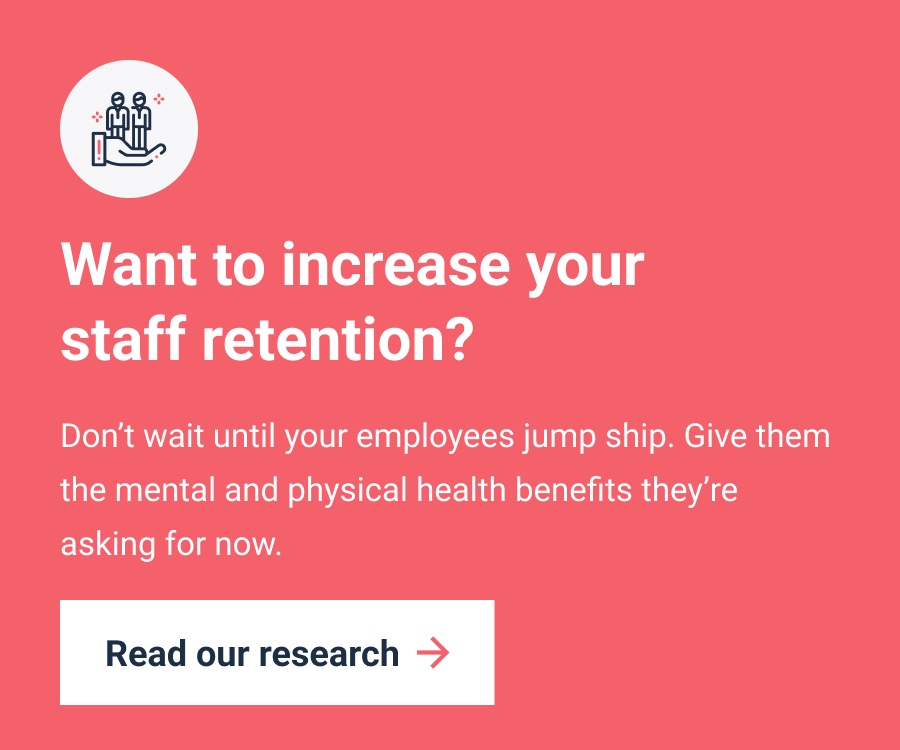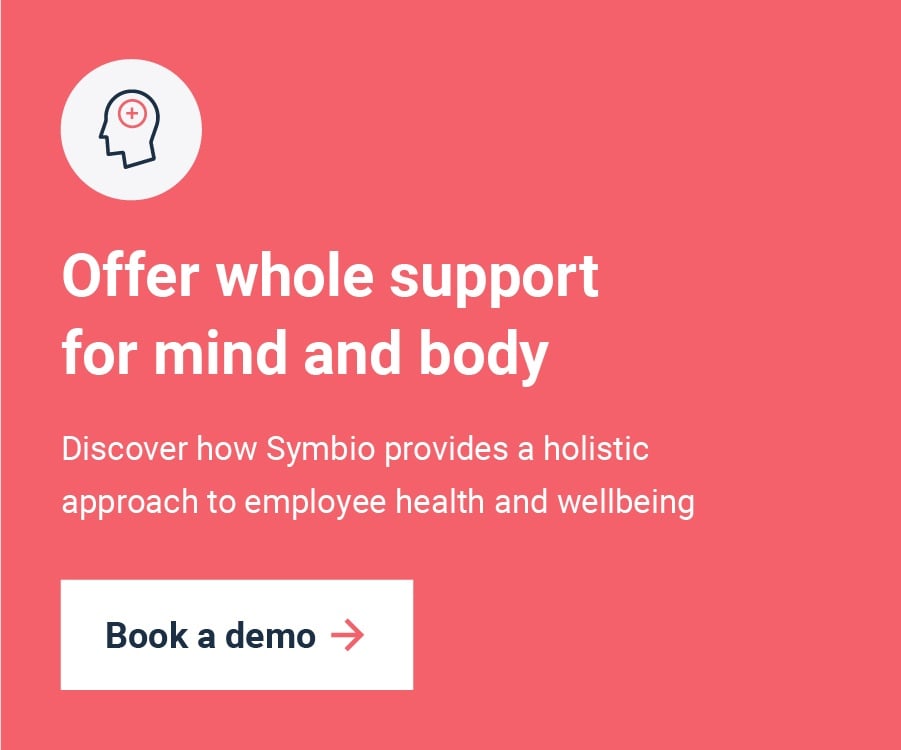51 percent of employees feel uncomfortable disclosing poor mental health to their employer. Only 58 percent feel their employer would support them if they did. People who don’t feel comfortable or supported, are unlikely to open up. And that’s a problem.
Poor mental health costs UK employers £56 billion per year. You may already be encountering burnout, staff turnover and presenteeism in your own workplace. And of course, behind every mental health statistic are real people struggling.
In this post, we’ll discuss why talking about mental health is so important. We'll also suggest ways you can support your workforce to open up.
Why talking is important
Keeping any problem to yourself usually makes it feel bigger. You think about it. You worry about it. You may even feel anxious, as a result. In contrast, talking about a problem releases stress and tension.
When you’re struggling with a mental health issue, talking about it really helps. But what if you've never heard mental health discussed in your workplace? Would you feel comfortable raising the subject?
Research from St John’s Ambulance found that 80 percent of employees weren’t even sure if their company had a mental health wellbeing policy. People experiencing mental health problems shouldn’t have to start the conversation.
Talking about mental health destigmatises the subject and takes the pressure off individuals, showing them they are part of a supportive culture. People need to have heard the subject of mental health talked about at work. They need to trust that managers have a level of sensitivity and understanding.
These safe outlets for sharing also come with business benefits. They help your organisation to prevent absences, decreased performance and employee turnover. Better mental health could even increase productivity.
How to encourage your employees to open up
Break down the stigma
Don’t treat mental health as taboo. Mental health and wellbeing conversations shouldn’t only happen one-to-one, behind closed doors. Instead, normalise the topic in your everyday working weeks.
Make it easier for individuals to seek help by creating a culture that encourages openness and empathy. For example, try booking an external speaker or workshop that promotes discussion. Provide digital tools that empower people to look after their mental wellbeing. Use events, such as Mental Health Awareness Week, to increase understanding.
Empower line managers
Line managers are a vital aspect of workplace wellbeing. According to Mind:
‘Of those [survey respondents] who said their manager does not support their mental health, 72 percent had experienced anxiety on multiple occasions in the past month. This is 28 per cent higher than the proportion of those who felt their manager does support their mental health.’
For hybrid and remote workers in particular, line managers are the most consistent point of contact with the workplace. Encourage line managers to make time for check-ins and conversation. They are in a position to foster an environment where sharing is normal. Don’t assume though, that they have the skills to talk about mental health. It's a challenging subject for many people. Provide guidance, support and education, so managers know how to approach the subject with sensitivity.
Make your services accessible
Paper documents and policies can be difficult to access. They're even less available to employees who work from home. And it's not easy or convenient to provide in-person health services to a remote team.
When it comes to mental health, the decision to seek support can feel daunting. The more steps involved to access that support, the less likely people are to do it. Help your employees to open up and seek help. Adopt accessible services that suit their preferences. And remember - preferences and abilities will differ from one person to the next.
Adopting an accessible digital wellbeing solution will help you adapt to these different needs. Symbio, from HealthHero, simplifies health and wellbeing provision for busy HR teams. It’s accessed via smartphone, and it provides a truly personalised experience. With Symbio, employees choose to learn about topics relevant to them. And they can access qualified clinical support by video call, phone or chat.
Provide anonymous employee assistance programmes (EAPs)
40 percent of men won’t talk to others about their mental health. Of those, 29 percent say the reason is embarrassment.
One in seven LGBTQ+ people have avoided getting healthcare treatment due to fear of discrimination.
Lots of people have concerns about accessing mental health support, for very personal reasons. Effective employee support programmes respect those concerns and allow anonymous access to services.
Anonymous EAPs remove many of the barriers to talking about mental health. They make it easy for people to open up and get the help they need. A phone call isn't completely anonymous. So, your EAP should allow employees to seek support via a text-based chat feature. Members of your team might feel unable to talk about their mental health. Providing a depersonalised text option could help them express themselves.
Facilitate mental health first aid training
Don’t limit mental health first aid training to management. This is important training. It teaches people to spot the signs of common mental health issues and offer support. The more people able to do those things, the better.
Open this training opportunity to everyone in the organisation. You’ll increase awareness and empathy.
Implement holistic health and wellbeing benefits
Mental health impacts physical health and vice versa. So, the best employee support solutions take a holistic approach to wellbeing.
Symbio is a complete health and wellbeing solution. It provides access to GPs, as well as counselling services. It also empowers your people to help themselves. Individuals can track their wellbeing and resilience, over time. Self-guided therapeutic programmes support them to educate themselves and build new skills. An educated, supported workforce is more likely to open up and seek help when they need it.
Contact us to book a demo of Symbio.






